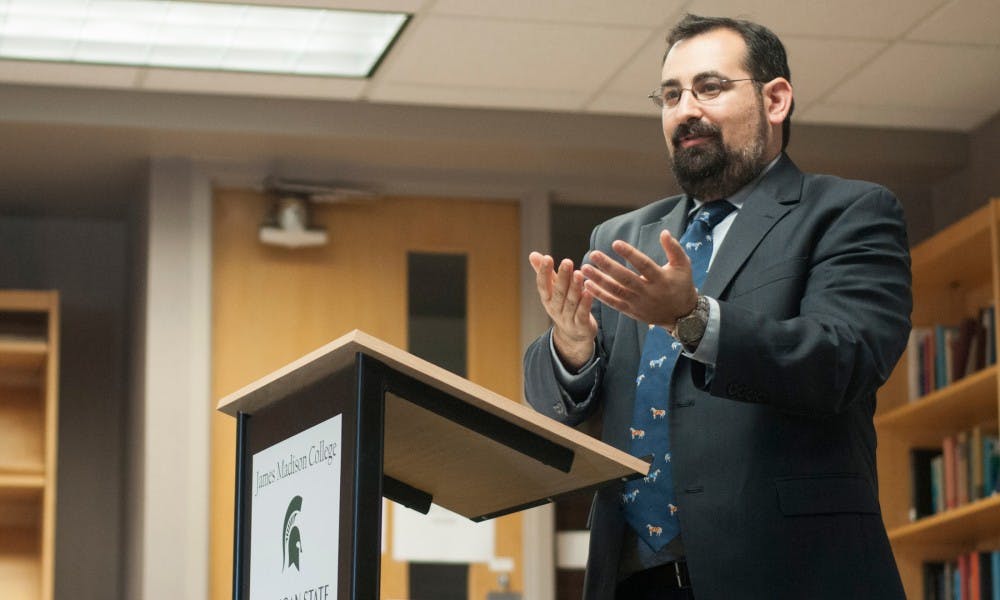In celebration of Constitution Day, the Foundation for Individual Rights in Education or FIRE, a legal consultancy and advocacy group that defends the first amendment rights for college students across the nation, hosted a seminar at the James Madison College to discuss students’ unalienable rights in the context of a college atmosphere.
According to FIRE’s website, MSU is a “yellow light” institution, meaning it secures the freedoms of the first amendment in some areas, while also needing improvement in others.
Certain ambiguities stand out in a few codes pertaining to speech conduct on campus. For example, the MSU Office for Inclusion and Intercultural Initiative’s definition of harassment is close to the Supreme Court’s definition in terms of severity and pervasiveness of the statement.
Azhar Majeed, an associate director of FIRE’s legal and public advocacy, said the Office for Inclusion and Intercultural Initiatives prohibits any language, no matter how trivial, that could be perceived as offensive — a problematic notion.
“Hurting someone’s feelings is not the same as harassment,” Majeed said.
“We are lobbyists for liberty,” Legal and Legislative Policy Advocate Shelby Emmett said. “We don’t pay attention to content.”
Emmet, an MSU alumna, paid mention to their defense of both pro-life and pro-choice groups in regards to their right to legally assemble and express their opinions.
Legislative and Policy Director Joseph Cohn and Emmett acknowledged the fact that defending freedom of speech can often appear as if they are defending the aggressor. However, Cohn welcomes the idea of certain individuals and groups “self-identifying their bigotry.”
This not only flags certain groups as intolerant, he said, but it gives the afflicted a chance to voice their own opinion, garner support and fight back using their own rights.
“Free speech has been the driving advancement in every single progressive movement in this country,” Cohn said.
Social relations senior DeMasi Washington attended the presentation and, while it reinforced his beliefs on using free speech as a progressive tool, he had his own thoughts on the matter.
Washington said it is “extremely important for all individuals on campus to feel comfortable.”
“There is only so much an afflicted person can do,” he said, adding that some individuals do not have the legal means to combat larger groups.
Emmett believes that “education, not punishment,” is the way to move forward and freedom of speech will bridge cultural gaps.
Emmett recalls a specific MSU class having a discussion regarding the impact of Hurricane Katrina. She said she feels that since conflicting viewpoints were able to discuss certain issues, “everyone left the classroom with a better understanding” of the opposing aisle.
This is the issue in Washington, Emmett said. Everyone only associates with people of a similar background and fails to “value other viewpoints.”
Yet, MSU does not infringe upon the students’ right to assemble and voice their opinions, Majeed said.
Compared to other universities in Michigan, MSU leads the way. The University of Michigan has a red rating as well as Ohio State University.
MSU is “close to a green rating,” said Majeed, and individuals such as himself and Emmett said they believe MSU could be the first in the state of Michigan.







